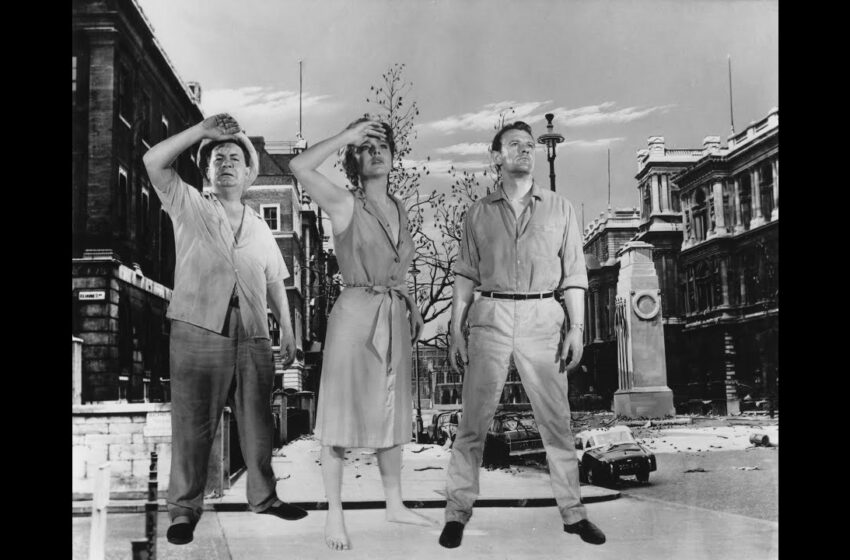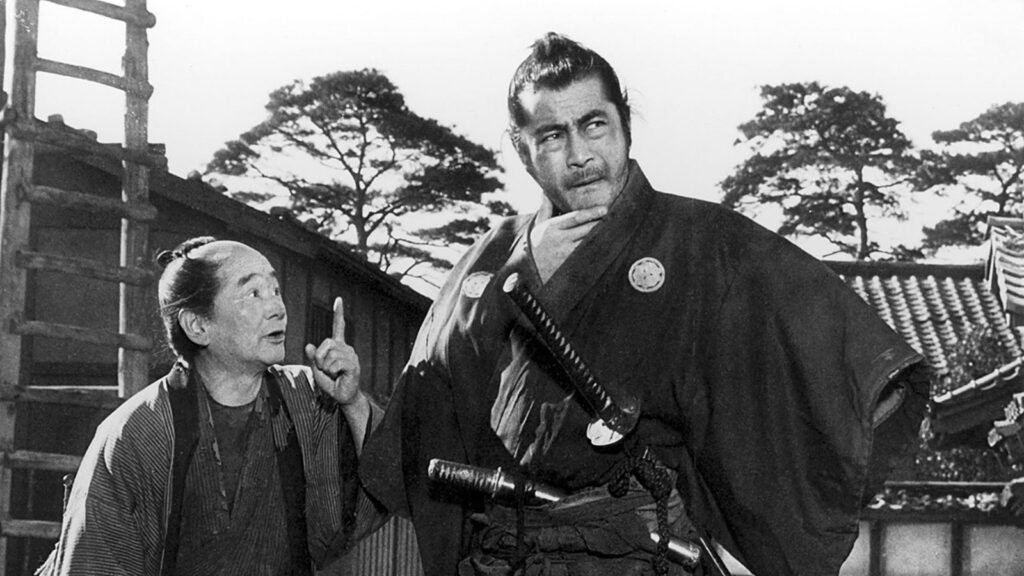
The Day the Earth Caught Fire (1961): When Sunscreen Just Won’t Cut It – Review

“The Day the Earth Caught Fire” is a cinematic journey into a world where SPF 100 might be your best friend. Directed by Val Guest and released in 1961, this British science fiction film gives a dramatic, yet often subtle, portrayal of a world on the brink of climatic catastrophe. It’s “An Inconvenient Truth” meets 60s film noir, with a sprinkle of British stiff upper lip.
Plot: A Hot Mess, Literally
The Earth is thrown off its axis and hurtling towards the sun due to nuclear bomb tests by the USA and the USSR. Journalists at the Daily Express in London scramble to cover the story as the planet becomes increasingly hot and chaotic. As temperatures rise, so do tempers, and Londoners are left to ponder whether their beloved city will turn into the world’s largest sauna.
The narrative follows reporter Peter Stenning, a cynical journalist with a penchant for alcohol and pessimism, as he uncovers the truth about the escalating global disaster. While the impending doom looms large, Stenning also navigates a romantic subplot with Jeannie Craig, a government scientist and the film’s voice of reason.
Characters: Keeping Cool When Things Heat Up
Peter Stenning, played by Edward Judd, is the embodiment of the jaded journalist trope. His transformation from a disillusioned reporter to a man driven by purpose forms the crux of the character arc. Jeannie Craig, portrayed by Janet Munro, offers a counterbalance to Stenning’s cynicism. Her character, while rooted in 60s sensibilities, brings a depth and urgency to the narrative.
The supporting cast, from Stenning’s colleague Bill Maguire to the newspaper’s editor, add layers to the story, showcasing a range of reactions to the impending apocalypse. Their interactions provide a snapshot of humanity’s resilience, denial, and desperation in the face of catastrophe.
Behind the Scenes: Simmering Tensions and Technical Triumphs
Val Guest’s direction aimed to blend the realism of journalistic endeavors with the broader science fiction theme. The film’s black and white palette, combined with its documentary-style approach, lends an air of authenticity. It’s as if one is watching real-time newsreels of the world’s end.
The production faced challenges in depicting a superheated London. Practical effects, combined with meticulous set design, transformed the city into a sweltering hellscape. The use of colored filters, especially during the climactic scenes, created an atmosphere of intense heat and desolation.
One of the film’s notable achievements is its sound design. The cacophony of city life, juxtaposed with the eerie silence of deserted streets, creates an auditory landscape that complements the visual narrative. The lack of a traditional musical score further heightens the film’s sense of realism.
A Light Roast on “The Day the Earth Caught Fire”
For a film centered on global warming, “The Day the Earth Caught Fire” is ironically cool in its approach. It doesn’t resort to over-the-top theatrics or melodrama. Instead, it simmers, building tension gradually, much like a pot of English tea. The film’s subtle humor, often rooted in British idiosyncrasies, offers moments of levity amidst the doom and gloom. Lines like “Time to pick out your last shirt,” delivered with deadpan humor, capture the film’s essence – a world facing catastrophe, yet unable to let go of its quirks and habits.
Final Thoughts: A Fiery Reflection on Humanity
“The Day the Earth Caught Fire” is more than just a sci-fi disaster film. It’s a meditation on humanity’s hubris, the consequences of unchecked power, and the resilience of the human spirit. Through its nuanced characters and grounded narrative, the film poses a question that remains relevant today: In the face of global crises, how will humanity respond? With denial, despair, or determination?
While the film’s premise might seem fantastical, its underlying themes resonate with contemporary issues, making it a timeless exploration of human nature and societal constructs. In the vast universe of science fiction, “The Day the Earth Caught Fire” shines not as a blazing inferno, but as a slow burn, capturing the imagination and prompting introspection.




